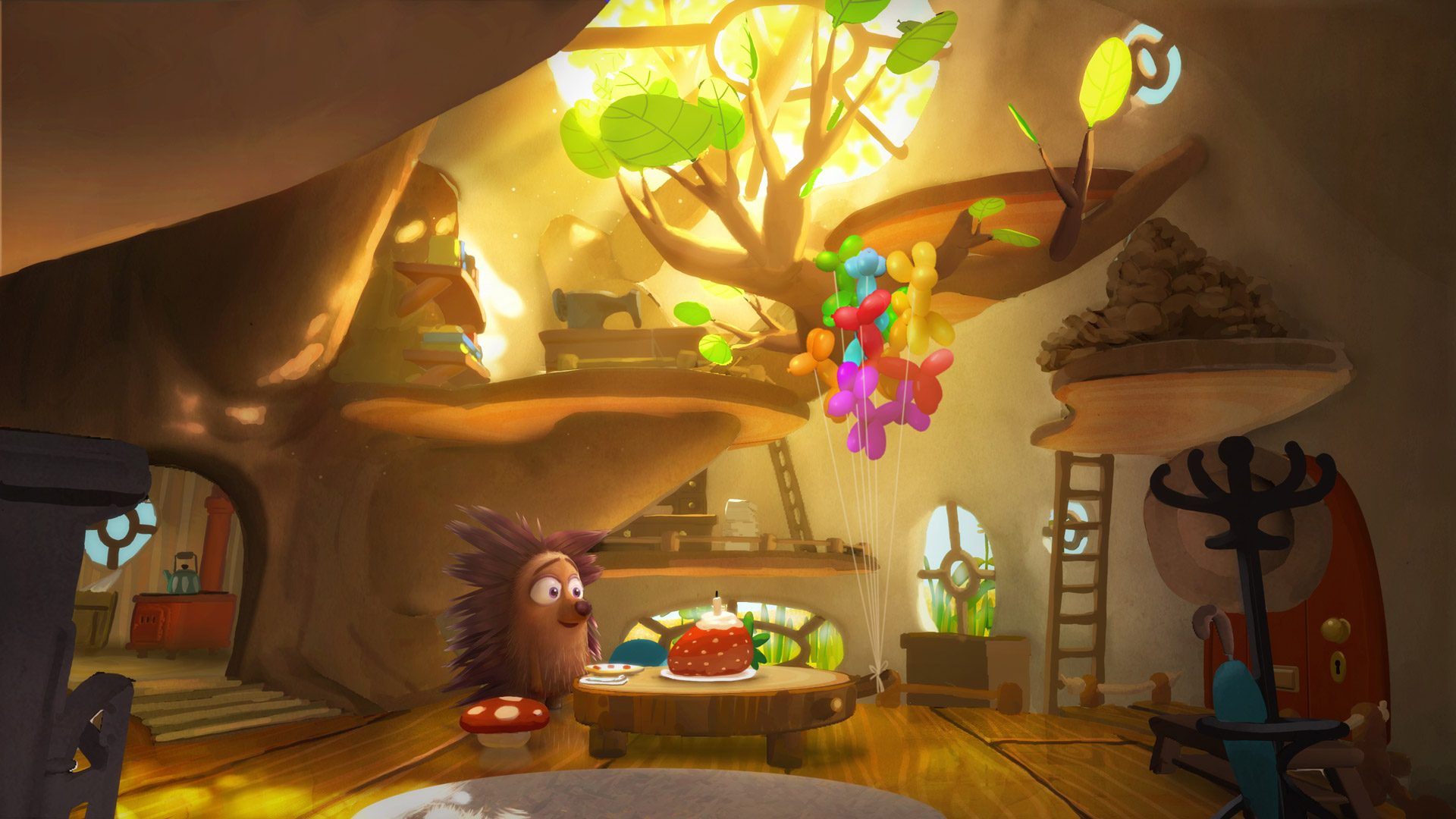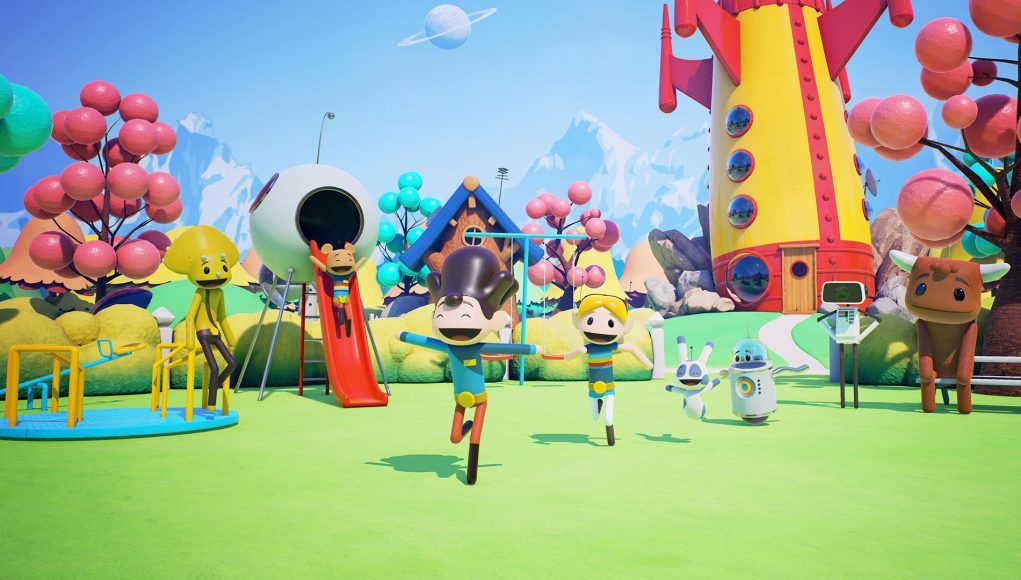You have a minor infestation of tiny people in your house. They don’t pay rent, they don’t like to brush their teeth, and they always want to use your stuff—the most important of which is your VR headset (even if they technically aren’t supposed to).
Nowadays you’re sooner to park your rugrat in front of a TV or iPad than give carte blanche with your precious VR headset, but as headset prices go down and the technology becomes more suited to the brains of little ones, this will invariably change. Despite some niggling issues with suitability for tiny developing brains in current gen headsets, kid-focused VR content is coming.
A forerunner to the trend: Morgan Lives in a Rocket House. As a CGI cartoon created for flatscreens, you follow Morgan, a kid marooned on an alien planet light years from Earth. Along with a cast of characters, you get to watch Morgan play and learn in the happy little village his ship crashed into many years ago—the sort of setup like Peppa Pig and Dora the Explorer that kids seem to love. Virtual reality versions of these cartoons, like the upcoming VR episode of Morgan Lives in a Rocket House in VR, may be what kids clamor for in the near future for good reason: it gets them paying attention to the magic of the world present all around them, and doesn’t just leave them immobile and dead-eyed sitting in front of a TV.
Created by Peter Monga, a New Zealand-based indie dev, Morgan Lives in a Rocket House in VR is the first VR episode in the series. At only 4 minutes-long, it’s more of a proof of concept, but it gives us a peek into the future of a kid-focused genre that hasn’t seen much attention until now; preschool entertainment.
Morgan Lives in a Rocket House in VR is launching November 3rd on Steam for free.
Where are the VR kids’ shows?
There’s a few reasons why kid-focused VR content hasn’t popped up en masse since the launch of consumer VR in 2016. Besides the fact that VR headsets are simply too expensive to buy for small children and are designed for adult head-sizes (jammy fingers don’t help), the current generation of VR doesn’t replicate the exact way reality appears to the unaided observer. Because current gen headsets don’t give the user all of the same depth cues reality does, causing a phenomenon called vergence accommodation conflict, only sufficiency-formed human brains need apply—that’s the hypothesis anyway.

While technologies like foveated rendering are set to change this in the near future, giving a more ‘correct’ photon-to-eyeball experience, current gen headsets like Oculus Rift, HTC Vive and PSVR are staying on the safe side. Samsung and Oculus have a 13+ age rating for both Gear VR and Rift, and Sony maintains the PSVR “is not for use by children under age 12.” HTC hasn’t set a specific age limit, but offers warning about ‘young children’ using the headset.
Admittedly there’s a lack of hard evidence that the headsets’ inability to replicate reality’s focus cues will necessarily do harm. Digital Trends spoke to Martin Banks, a Professor of Optometry, Vision Science, Psychology, and Neuroscience at the University of California at Berkeley to understand more on the subject:
“So far I’ve seen no so-called smoking gun, no concrete evidence that a child of a certain age was somehow adversely affected by wearing a VR headset,” said Banks. “My guess is that all they’re doing is saying that kids are developing and development slows down when they reach adolescence, and so lets just play it safe and say that while these kids are undergoing significant development, we’ll advise people not to let them use it.”
While parents should definitely take caution when throwing the quickly-developing brain of a young one into the current gen of VR, we can’t help but highlight the short and sweet Morgan Lives in a Rocket House in VR as it shows incredible promise to deliver entertaining stories and even a lesson or two from within VR, much like the award-winning Henry (2017). As creators like Monga further test the digital waters with their kid-focused content, it’s remains clear that VR for kids is coming, and it’s going to transport your kids to another dimension sometime soon.







